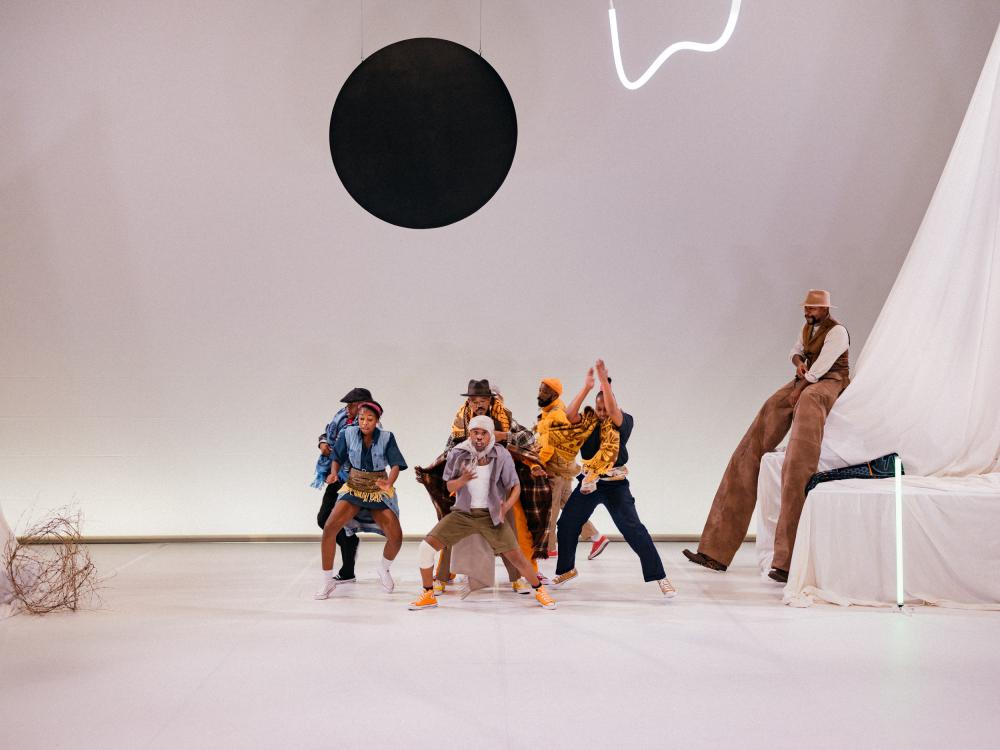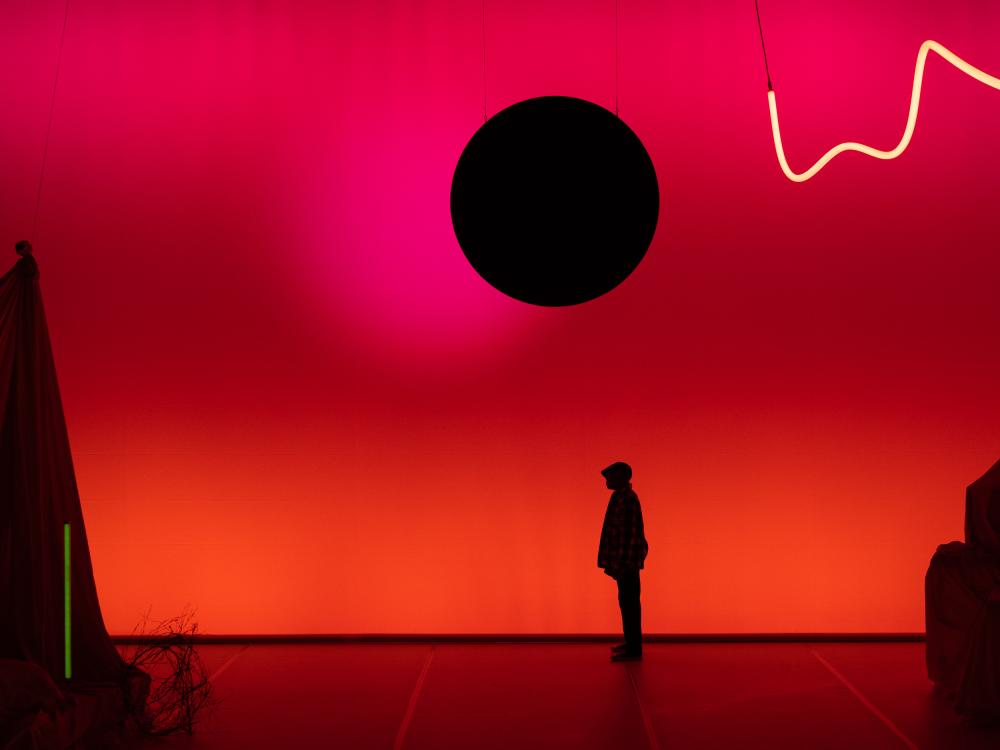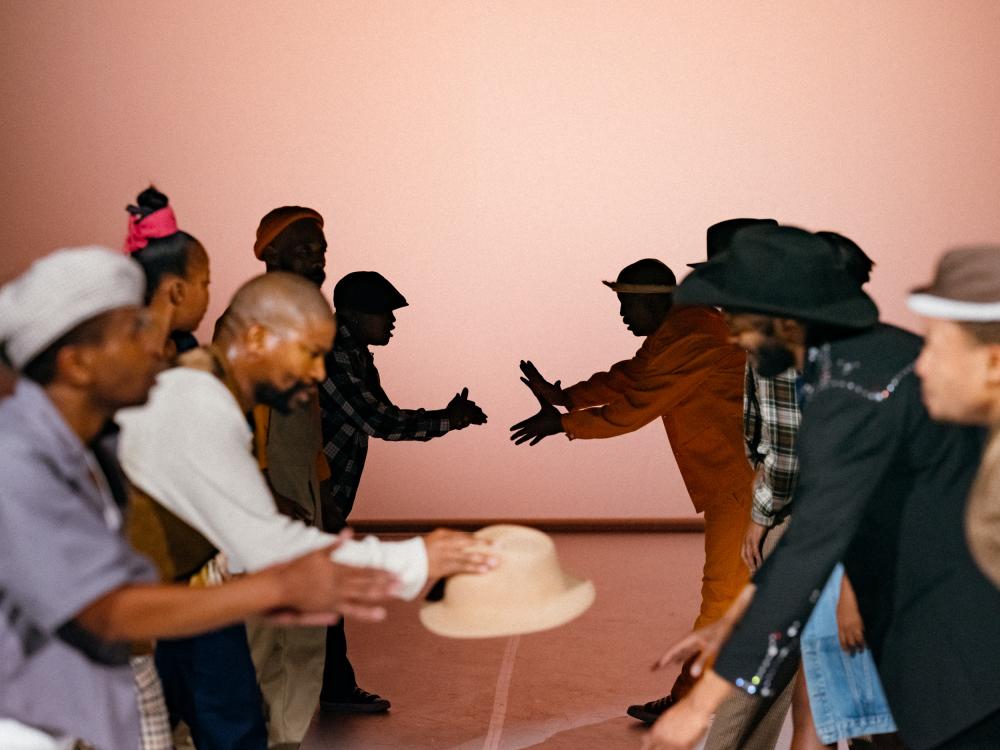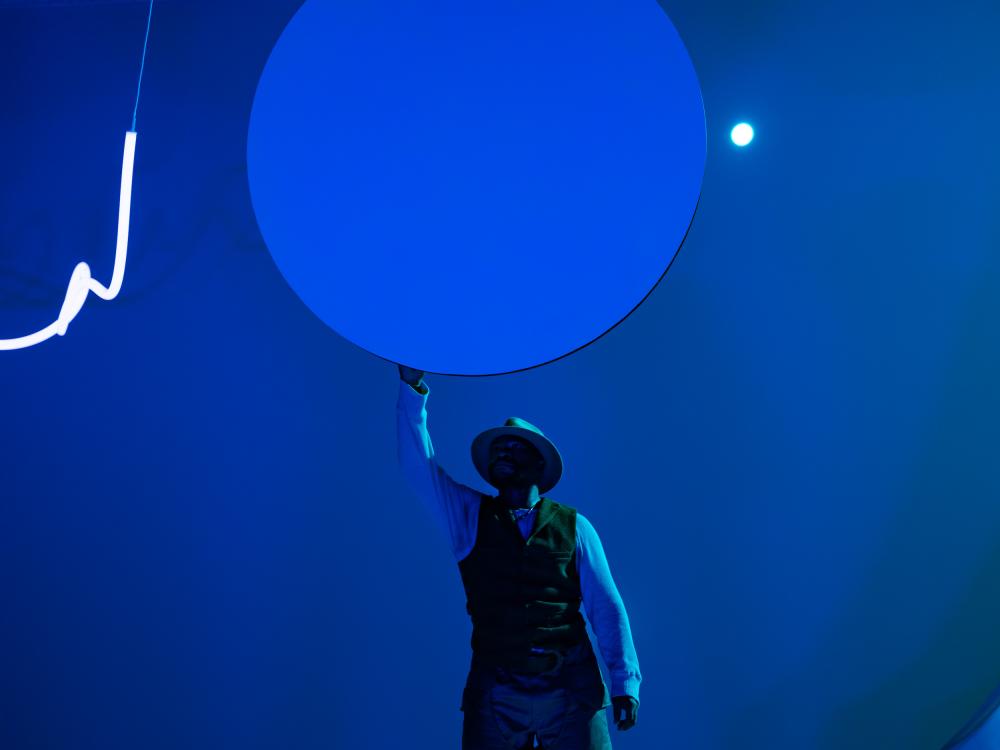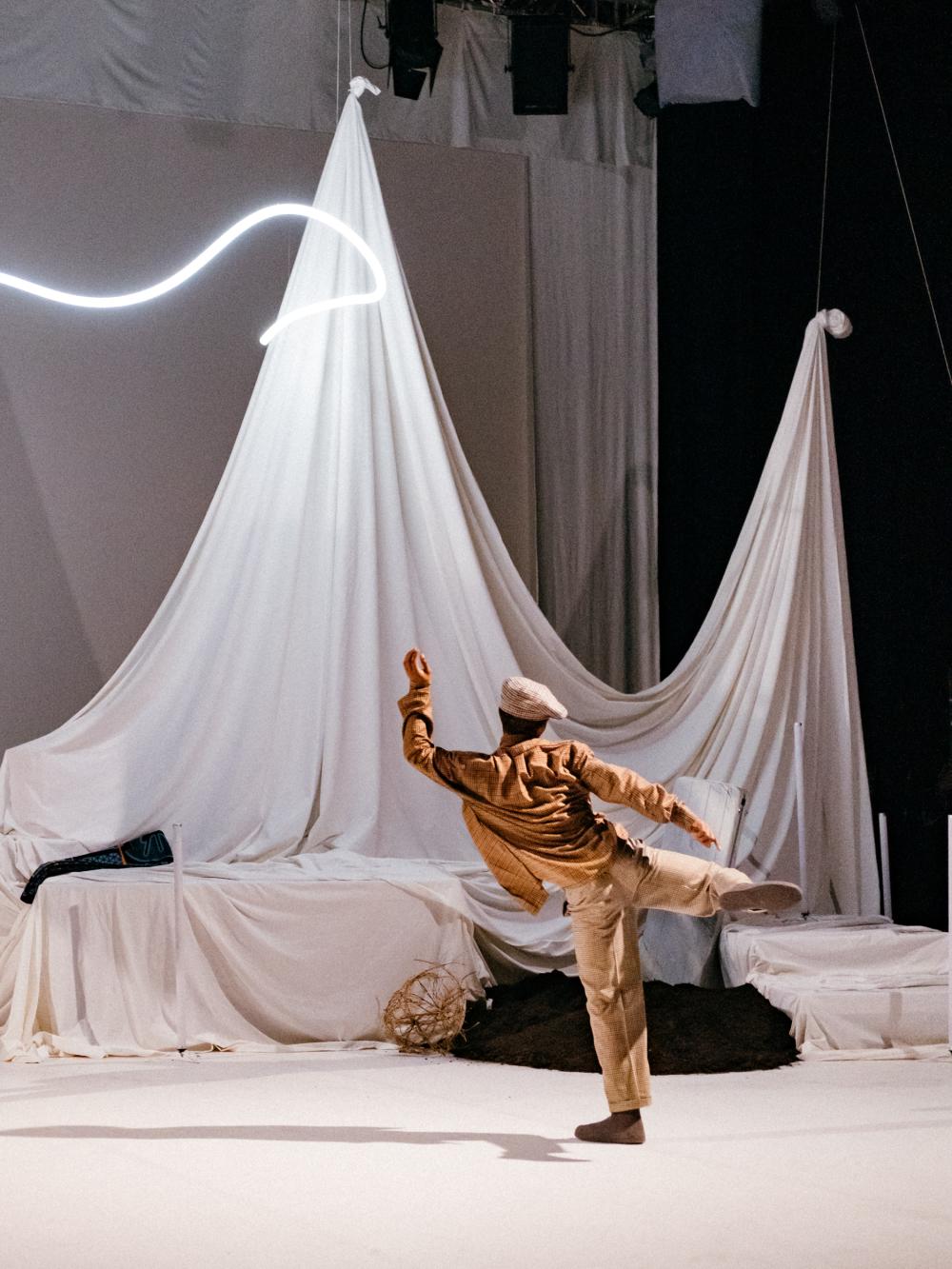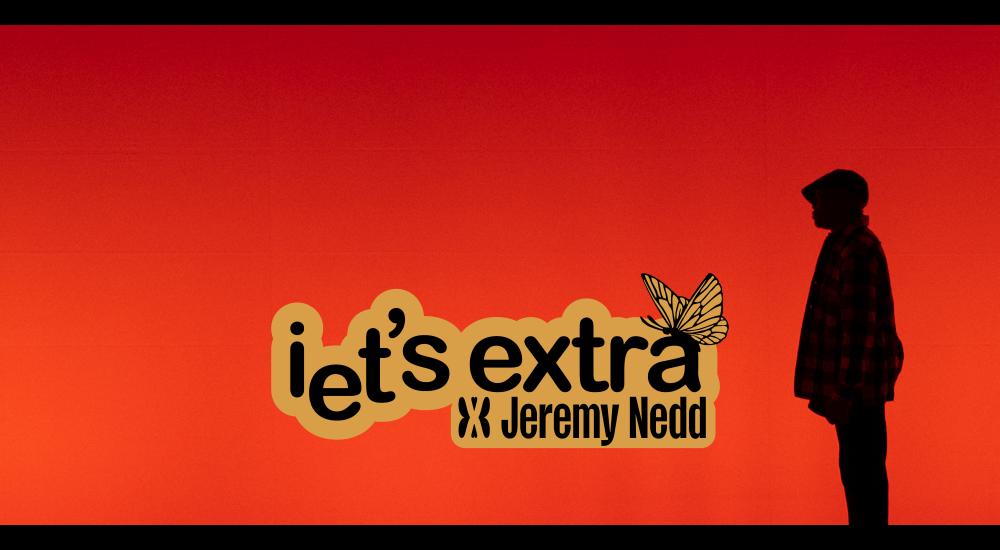How a falling star lit up the purple sky [+10]
Western films serve as a speculative starting point for new stories and myths for Jeremy Nedd and the nine Pantsula artists of Impilo Mapantsula. The cinema genre of the western utilises some of the most explicit tropes around the hero, the ‘other’ and the vast, empty landscape which they both inhabit and fight over. It produced a set of simplistic characters and images that have become deeply engrained in the collective imagination.
Pantsula is a virtuosic dance-form best known for its fast footwork that was created in Johannesburg’s townships during apartheid. Through this dance, Jeremy Nedd and Impilo Pantsula write new stories in which nature, instead of humankind, dominates the scene.
How a falling star lit up the purple sky is a dynamic visual poem that proposes a paradigm shift, away from the cinema genre of the western with its habitual gunfights, vilification of indigenous people and claims to “undiscovered” land. It re-thinks the idea of the archetype and joyously invites a re-assessment of the psychic and geographical spaces occupied by the western, the (Wild) West, and the South.
• Jeremy Nedd is a Brooklyn-born choreographer and performer based in Switzerland. Nedd has worked for the Semperoper opera house in Dresden and for Ballett Basel. As a guest performer, he’s affiliated with Schauspielhaus Zurich, where he has collaborated with Trajal Harrell. He has also presented productions at Kaserne Basel, ROXY Birsfelden, Arsenic - center d'art scénique contemporain, Palais de Tokyo and Münchner Kammerspiele.
• Impilo Mapantsula is a global network of high-level professional dance artists who specialise in Pantsula, a South African urban dance form. They are a professional organisation that promotes the development of Pantsula dance and culture. The organisation aims to document and protect the living legacy of Pantsula and support dancers with professionalising and further developing their art.
concept / choreography Jeremy Nedd | performance / choreography Sicelo Xaba, Vusi Mdoyi, Sello Modiga, Thomas Motsapi, Bonakele Masethi, Kgotsofalang Moshe, Vuyani Feni,Sibongile Mathebula, Elma Motloenya | lighting Design / technical management Thomas | giger stage design / technical management Laura Knüsel | audio design Fabrizio Di Salvo & Rej Deproc | musical consultation Brand y Butler | costume Rosa Birkedal | dramaturgy Anta Helena Recke | production assistance Kihako Narisawa, Juliana Simonetti | production management Regula Schelling / produktionsDOCK | touring management Caroline Froelich / Moin Moin Productions | in coproduction with Kaserne Basel; Arsenic – Contemporary Performing Arts Center, Lausanne; International Summer Festival Kampnagel; Wiesbaden Biennale; The Centre for the Less Good Idea, Johannesburg | with the kind support of Fachausschuss Tanz & Theater BS/BL, Pro Helvetia, Swiss Arts Council, SüdKulturFonds, Stanley Thomas Johnson Stiftung, Kulturfonds of the Société Suisse des Auteurs (SSA), GGG Basel, Jacqueline Spengler Stiftung, Scheidegger-Thommen-Stiftung, Schweizerische Interpretenstiftung
The Africa is/in the Future festival highlights the artistic initiatives and proposals of Black people and artists from the continent and its diasporas.
The 7th edition of Africa is/in the Future, from 8 to 11 November 2023, will focus on the different dynamics and relationships within networks. How do you form a community? By what means and for what purposes? How do we take care of it, for ourselves and for others? Because community care is all about knowledge and sharing it, and by extension, preserving and developing it.
